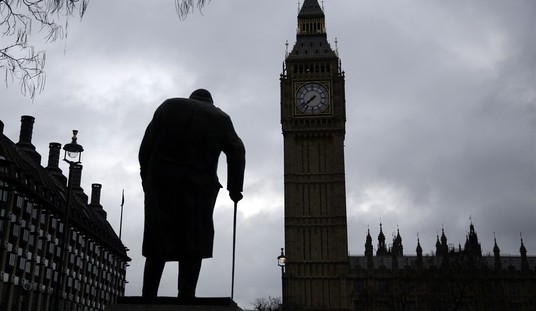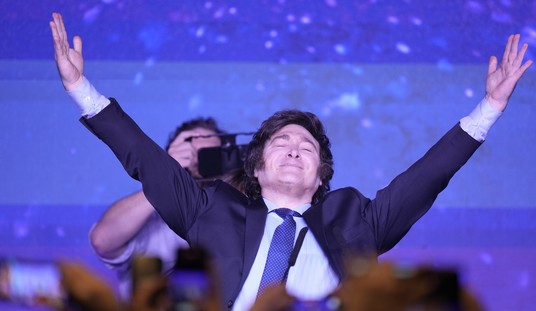The world is in flux, but where does it go now? The extent of the perceived crisis was exemplified by former Swedish prime minister Carl Bildt‘s op-ed in the Washington Post. He wrote that the rise in “dark forces” represented by Nigel Farage and Donald Trump meant the end of the West as we know it because it threatened American support for the European project which was the cornerstone of the post-WW2 edifice.
We should not forget that this has been profoundly in the interest of the United States as well. Twice in the past century it was dragged into wars as Europe plunged into acrimony and conflict. A peaceful, free and prosperous Europe has been a key strategic U.S. interest.
There has been a recognition that this aim is best furthered by the process of European integration centered on the European Union. A Europe that starts fracturing will be a less stable and, in the longer perspective, also a more dangerous Europe.
When Trump receives the jubilant British anti-Europe campaigner Nigel Farage before seeing other foreign politicians, he is sending the worst possible signal to Europe. By design or by default, he transmits a signal of support to those dark forces in various countries trying to undo what generations of U.S. and European statesmen have worked to achieve.
But in Henry Kissinger’s view, American popular support for Bildt’s vision of the West died a long time ago. When Jeffrey Goldberg asked Kissinger in an Atlantic interview what a Trump victory signified for American foreign policy, he replied that it would provide a chance to bury long dead corpses and chart a new course. “It could enable us to establish coherence between our foreign policy and our domestic situation. There is obviously a gap between the public’s perception of the role of U.S. foreign policy and the elite’s perception. I think the new president has an opportunity to reconcile the two.”
I think most of the world’s foreign policy has been in suspense for six to nine months, waiting for the outcome of our election. They have just watched us undergo a domestic revolution. … The Trump phenomenon is in large part a reaction of Middle America to attacks on its values by intellectual and academic communities. There are other reasons, but this is a significant one.
What Bildt perceived as American support for the European project was in reality a far narrower “elite” support. The split that Bildt decries comes not from a geographical division between America and Europe so much as a gap between the elites and — for want of a better word — the “populists” that afflicts them both. Kissinger notes the world was already “in chaos” before Trump caused largely by what Jeffrey Goldberg paraphrased as Obama’s effort “to protect the world from America.” That policy failed.
In my opinion, Obama seems to think of himself not as a part of a political process, but as sui generis, a unique phenomenon with a unique capacity. And his responsibility, as he defines it, is to keep the insensitive elements of America from unsettling the world. … The world is in chaos.
Now there is no choice but to go back to the drawing board. The world is caught on the hop between eras, in transition between the post-WW2 period and one yet to emerge. How does the president reconcile “the public’s perception of the role of U.S. foreign policy and the elite’s perception”? By trial and error apparently. In Leo Linbeck’s analysis of populist revolutions given at the Stanford Investor Forum, it may take “a couple of decades at least” to reach a new consensus. “We are in the early innings.”
Creating a new consensus will not be a smooth linear process but one that is characterized by subsidiary conflicts and gradually emerging perceptions. Linbeck’s presentation suggests that the underlying factors of the “populist” revolution such as changes in growth and scale, the centralization of political power, the concentration of wealth, electoral accountability, family breakdown and immigration are still playing themselves out. They are still in flux. The worst — or the best — is still to come. “The Old Rules were becoming anachronisms,” he writes. New ones will emerge as underlying causes force everyone to adopt, but what these are is still unclear.
Even Europe may be forced to change. Carl Bildt may be right about it being the end of the West as we know it. As we knew it. But that is not necessarily a bad thing. As Shadi Hamid put it in Foreign Policy, it is only “the end of the End of History” and he does not know whether or not to feel afraid. “We are now condemned to live in exciting times. ”
Follow Wretchard on Twitter
Support the Belmont Club by purchasing from Amazon through the links below.
Recommended:
Objective Troy: A Terrorist, a President, and the Rise of the Drone, Author Scott Shane tells the story of the hunt for Anwar al-Awlaki, the once-celebrated American imam who called for moderation after 9/11, who ultimately directed his outsized talents to the mass murder of his fellow citizens. And it recounts how President Barack Obama directed the vast machinery of spy agencies to hunt Awlaki down in a frantic, multi-million-dollar pursuit that would end with the death of Awlaki by a robotic technology that is now changing warfare — the drone.
Kill Chain: The Rise of the High-Tech Assassins, Andrew Cockburn reveals how and why assassination by drone has become America’s principal way of waging war. Taking the reader inside the well-guarded world of national security and the powerful interests within, he describes what has really happened when the theories underpinning the strategy have been put to the test, and unveils the true effects, as demonstrated by bloody experience, of assassination warfare.
Righteous Indignation: Excuse Me While I Save the World, by Andrew Breitbart. In this book, he talks about the key issues that Americans face, how he has aligned himself with the Tea Party, and how one needs to deal with the liberal news world head on.
A World Restored: Metternich, Castlereagh and the Problems of Peace, 1812-22, Years before he was US Secretary of State and winner of the Nobel Peace Prize, Henry Kissinger wrote this book to understand and explain one of history’s most important and dramatic periods, a time when Europe went from political chaos to a balanced peace that lasted for almost a hundred years. Through analysis of the history and forces that create stability, he gives insight into how to create long-lasting geopolitical peace, lessons that he saw as applicable to the period immediately following World War II, when he was writing this book.
Kissinger: 1923-1968: The Idealist, by Niall Ferguson. The acclaimed two-volume biography of the former US Secretary of State whose advice has been sought by every president from Kennedy to Obama, drawn from closed private papers and documents from more than a hundred archives around the world.
Did you know that you can purchase some of these books and pamphlets by Richard Fernandez and share them with your friends? They will receive a link in their email and it will automatically give them access to a Kindle reader on their smartphone, computer or even as a web-readable document.
The War of the Words, Understanding the crisis of the early 21st century in terms of information corruption in the financial, security and political spheres
Rebranding Christianity, or why the truth shall make you free
The Three Conjectures, reflections on terrorism and the nuclear age
Storming the Castle, why government should get small
No Way In at Amazon Kindle. Fiction. A flight into peril, flashbacks to underground action.
Storm Over the South China Sea, how China is restarting history in the Pacific
Tip Jar or Subscribe or Unsubscribe to the Belmont Club









Join the conversation as a VIP Member